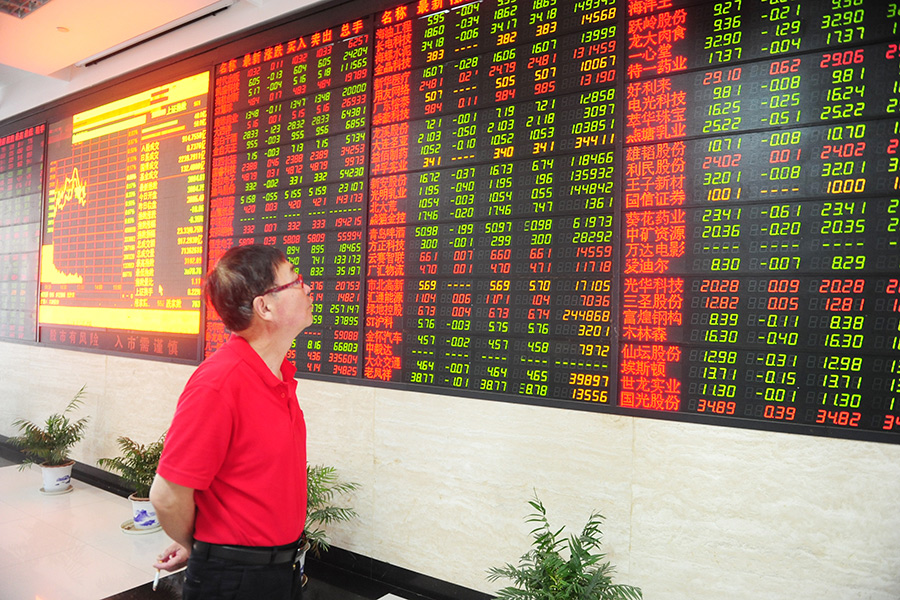Quality of listed firms is the key to market reforms


Regulators' efforts to enhance the quality of listed firms will give a major boost to China's supply-side reforms in the financial sector and the country's quality growth story.
Yi Huiman, chairman of the China Securities Regulatory Commission, the top securities regulator, has recently talked of persuading more firms with strong fundamentals to go public on the A-share market. The regulator will also expedite clearing out of listed companies with low development capacities.
This encouraging and timely statement has helped shore up confidence in the A-share market, which has been weighed down by recent backward steps in China-US trade talks.
Yi's remarks count for much because enhancing the quality of listed firms is the key to capital market reforms, which in turn play a core role in supply-side reforms of the financial sector and China's high-quality development.
More than half of the top 10 listed firms in terms of capitalization in the A-share market are from traditional industries, represented by State-owned large banks and oil refiners. This structure does not fully reflect China's industrial upgrade in recent years.
What's happened behind the scene is that many new-age Chinese corporates and old economy heavyweights have chosen to go public on overseas markets in the last 10 years or more. These include internet giants Alibaba and Tencent, carmakers Geely and Great Wall Motors, and property developers Evergrande and Country Garden.
Those companies boast bright development prospects, good profitability and are strong on innovation capacity. They are the best ones among all Chinese companies. Domestic investors have missed the chance to share the benefits of their development, as China's capital market actually lacks the ability to efficiently serve the real economy.
Meanwhile, a large number of listed companies in the A-share market actually operate with low efficiency and have lost the leading role in their industries and future growth potential. Those companies have not only occupied funds and other resources of the capital market, but have distorted market valuation and pricing systems.
Therefore, it is of great importance and urgency to implement supply-side reforms of the Chinese stock market by improving the quality of listed firms.
The reforms on the existing submarkets should facilitate the financing of companies with strong fundamentals and the clearing out of weak ones, thus keeping as listed companies only those that are likely to be industry leaders.
On the one hand, rules of the A-share market should be revamped to attract rapidly growing startups to debut here, and to draw floats of Chinese quality corporates listed overseas.
On the other hand, regulators should optimize and strictly enforce delisting rules, and ensure that companies with low efficiency exit the market. They should also encourage quality firms to acquire or merge with the companies set to exit the market.
With the fear of being delisted or "replaced" by better firms, listed firms will be more motivated to improve corporate governance and profitability. This effect, in tandem with floats of quality firms to be ushered into the market, will enhance the overall quality of A-share listed firms.
Improvements in the quality of listed firms will be conducive to developing a capital market with more vitality and resilience, as well as better capacity to prevent and resolve risks. Also, the reforms will help the A-share market better perform its function as the barometer of the real economy.
Li Daokui is the director, Like Aobo, the deputy director, and Mei Jinghua, a researcher of the Institute for Chinese Economic Practice and Thinking, Tsinghua University.



































